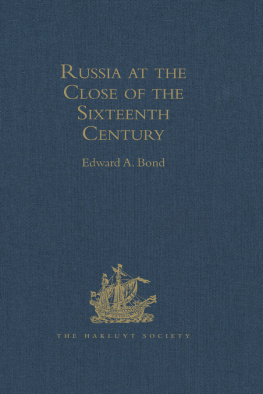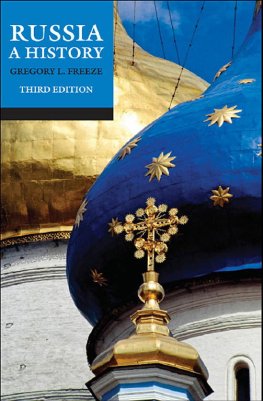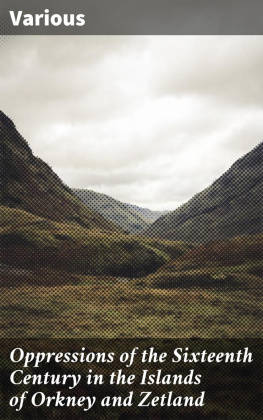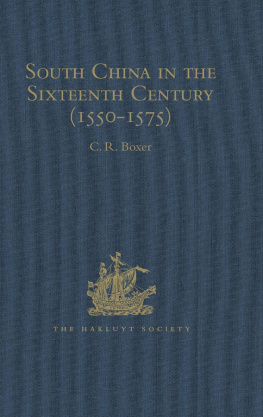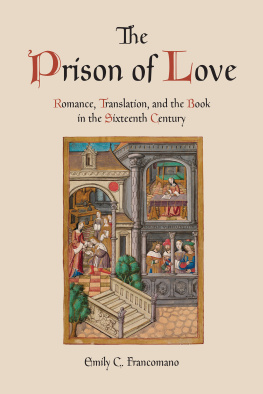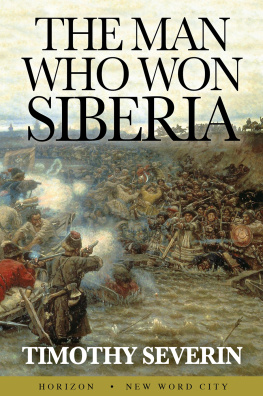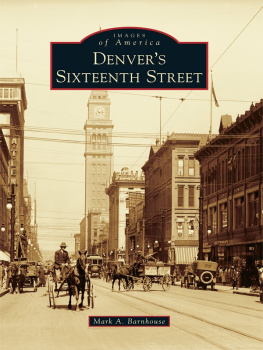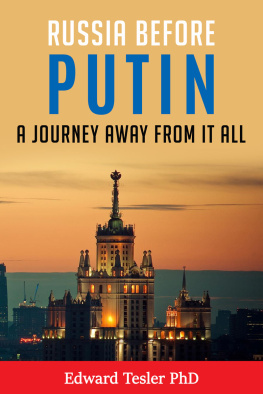First published by Ashgate Publishing
Published 2016 by Routledge
2 Park Square, Milton Park, Abingdon, Oxon OX14 4RN
711 Third Avenue, New York, NY 10017, USA
Routledge is an imprint of the Taylor & Francis Group, an informa business
All rights reserved. No part of this book may be reprinted or reproduced or utilised in any form or by any electronic, mechanical, or other means, now known or hereafter invented, including photocopying and recording, or in any information storage or retrieval system, without permission in writing from the publishers.
Notice:
Product or corporate names may be trademarks or registered trademarks, and are used only for identification and explanation without intent to infringe.
Founded in 1846, the Hlakluyt Society seeks to advance knowledge and education by the publication of scholarly editions of primary records of voyages, travels and other geographical material. In partnership with Ashgate, and using print-on-demand and e-book technology, the Society has made re-available all 290 volumes comprised in Series I and Series II of its publications in both print and digital editions. For information about the Hakluyt Society visit www.hakluyt.com.
ISBN 13: 978-1-4094-1286-1 (hbk)
WORKS ISSUED BY
The hakluyt society.
RUSSIA AT THE CLOSE OF THE SIXTEENTH CENTURY.
XI.DCCC.I.VI.
Contents.
: or, Maner of Governement by the Russe Emperour (commonly called the Emperour of Moskovia) with the manners and fashions of the people of that Countrey. By Giles Fletcher, LL.D.
abstracted owt of Sir Jerome Horsey his Travells, Imploiments, Services and Negociations, observed and written with his owne hand, etc.
. The most solemn and magnificent coronation of Phedor Ivanowich, Emperour of Russia, etc., on the tenth of June, in the yeere 1584; seene and observed by Master Jerom Horsey, etc.; wherwith is also joined the course of his journey overland from Mosco to Emden
imploymente of Mr. Jerome Horsey, Esquire, nowe Knighte, sente from hir Majestie to the Emperor of Rushea, in anno 1585 and 1589
. Complaints of the Russia Company against Jerome Horsey
. Papers relating to the Embassy of Dr. Giles Fletcher to the Russian Court
. Papers relating to Horseys Mission to Russia in 15901591
- A-3
- A-6
- A-7
- cxxxvi
- cxxxvii
- cxxxviii
- cxxxix
Guide
T HE two works which form the present publication are connected by more than one tie of relationship. They treat of the state of Russia, or of affairs relating to its history, at the same period; and they are both written by men who had a personal knowledge of the country: the author of the former having visited it as an ambassador from Queen Elizabeth to the Czar Fedor Ivanovitch, in the year 1588; and the author of the latter having been, from about the year 1575 to 1591, more or less continually resident there, first as an agent of the Russia Company, and subsequently as an envoy from the English court. The one serves as a sequel to or complement of the other; for, as the first gives a view of the institutions and form of government of Russia, the distinctions of the several ranks of society, and the religion, habits and customs of the people; the other records incidents in history, observations of the characters of the sovereign and his principal ministers, and valuable anecdotes of personal adventure in the country. Moreover, the author of the latter of the two tracts professes to have furnished that of the former with much of the material of his work.
Together, they will be found to give, with great completeness, a picture of the condition of Russia at the close of the reign of Ivan Vasilievitch;a monarch perhaps the most remarkable of those who had hitherto reigned; of great personal abilities and capacity for governing; of a nature strangely combining extremes of good and evil; but in which the latter gained, as he advanced in years, so much the ascendant as to drive him to atrocities almost unexampled, and to gain for him from his trembling people the title of the Terrible;and during the first years of the following reign, when the ambitious brother-in-law of this emperors son and successor was working out his deep-laid schemes for placing the crown on his own head.
The period is of special interest to Englishmen, as following so nearly on the commencement of their direct intercourse with a country whose character and policy have become subjects of their eager scrutiny, and by whose future career their own is likely to be deeply influenced.
Scarce thirty years had expired since, at the instigation of the illustrious Sebastian Cabot, and stirred by a spirit of rivalry with the Spanish and Portuguese adventurers in the New World and far East, merchants of London had associated together to set on foot exploring expeditions to penetrate, as they hoped, by the North Sea to the land of Cathay. Despite the miserable fate of a part of the first explorers, Sir Hugh Willoughby and his crew,frozen to death Caspian Sea, he arrived at Mangushluk on the 1st of September. From this point he commenced a land journey, with a caravan of a thousand camels, and passing by Selzira and Urghendi, succeeded in reaching Bokhara on the 23rd of December. Here he learned that the caravan communication, which had been established between this town and the empire of China, was now discontinued on account of a war which had been for the last three years raging between two of the Tartar hordes; and unable to prosecute his journey he was forced to return to Moscow, which he regained in September 1559.
In the year 1561in consequence of its resumption of peace with Turkey, and the restoration of the ancient course of trade with that country.
In the year 1565 another expedition to Persia was despatched by the Companys agent at Moscow, and orders were given that the commander of it, William Johnson, should lay down a map of the Volga and the Caspian Sea.
A fourth expedition,an interview with the Shah, which lasted two hours and resulted in a grant of privileges for the Company all written in azure and gold letters.
A fifth voyageboat, and suffered them to make their way to Astracn.
After a partially successful attempt to recover their goods from the pirates, by the assistance of the Russian governor at Astracan, they at length returned to Yaroslav, not, however, without further sufferings and dangers. The little they had recovered from the pirates was almost entirely lost through the crushing of their boat by the ice on the Volga. The commercial result of the expedition was truly disastrous. The value of the goods taken by the pirates of the Caspian Sea the adventurers estimated at thirty or forty thousand pounds.
It was not till the year 1579 that the Company ventured on another voyage to Persia, although, doubtless, an active trade was going on in produce of the country at Astracan, where the Companys agents were established. This sixth expedition was commanded by Arthur Edwards, William Turnbull, and others; and they took with them letters to the Shah from Queen Elizabeth. From Rose Island their merchandise was carried in boats up the river Dwina to Vologda; whence it was conveyed in waggons to Yaroslav. The usual route of the Volga and the Caspian Sea was then followed, and, after wintering at Astracan, they reached Derbent in June 1580. The further progress of the voyage was prevented by the disturbed state of the country, then engaged in war with the Turks; but a safe return to England was effected in the autumn of the following year.


